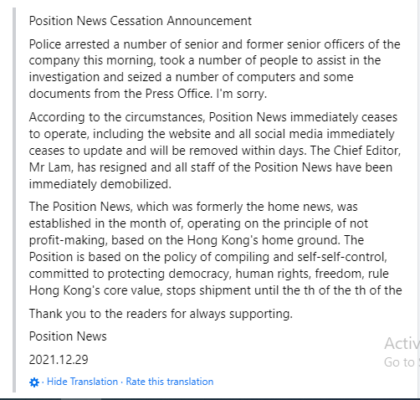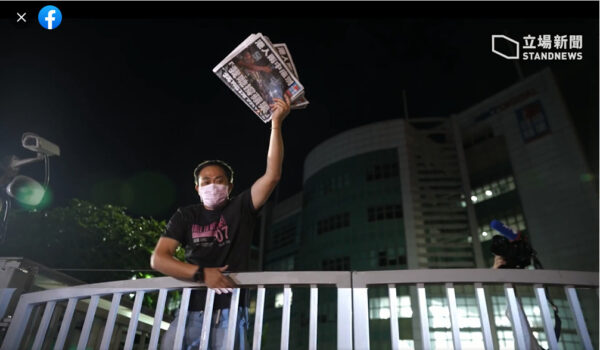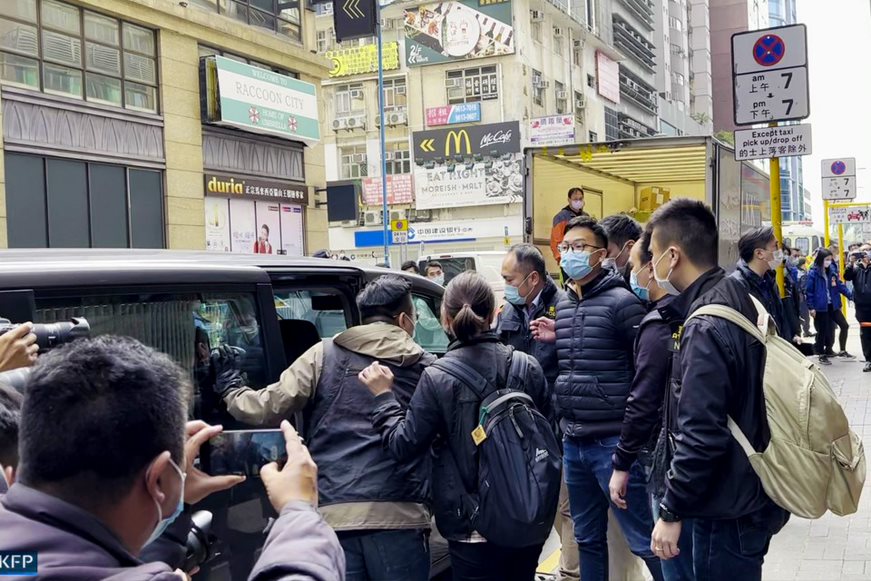Hong Kong-based media house, Stand News, discontinued operations on Wednesday after the police raided its office and arrested six staff members on suspicion of conspiring to publish seditious pieces.
The Facebook page of the media outlet also announced that all the information on its website as well as its social media pages will be removed within a few days.
Over 200 national security officers were deployed to conduct the raid at the premises of the non-profit news outlet, according to a Hong Kong Free Press report.
Those apprehended include acting chief editor Patrick Lam and former editor-in-chief Chung Pui-kuen, along with Chow Tat-chi, former director and ex-chief editor of the science section. Lam is said to have resigned immediately after his arrest. Former board members Christine Fang, pro-democracy singer Denise Ho, and barrister Margaret Ng were also reportedly taken into custody.
Head of Hong Kong Journalists Association, Ronson Chan, was detained as well to “assist investigation” though he was not arrested. Chan, who was released a little later, told HKFP that the police confiscated his electronic devices, his Stand News press card, and his bank passbook.

Police said that they had issued a warrant for the raid under Schedule 1 of the Implementation Rules for Article 43 of the national security law. The rule empowers the Hong Kong Police to search premises and other relevant places, to freeze and confiscate property, and conduct surveillance on people or organisations suspected of committing “serious crimes.”
In a press conference, Steve Li, senior superintendent of the Police National Security Department, said that the authorities had frozen assets totalling HK$61 million, including computers, mobile phones and HK$500,000 in cash. Li added that the police was not targeting the media, but was just taking action against “national security offences.”
Recommended
Hong Kong passed the Beijing-imposed national security law in 2020 in the wake of the civil disobedience movement that broke out in the former British colony in 2019. It is aimed at censoring voices that endorse, support, glorify, encourage, or incite activities that might “endanger national security.”
The new law has curbed the freedom of citizens in several ways, with news agencies becoming a primary target.
In June, the pro-democracy newspaper Apple Daily shut down operations after it was raided and its executives were arrested for alleged “collusion with a foreign country.” Additional charges were imposed on Tuesday against its founder Jimmy Lai and six other former staff members as part of their trial under the national security law.
Stand News has come under fire now in a similar fashion.

A winner of the Reporters Without Borders 2021 Press Freedom Prize, Stand News was founded in 2014 after its predecessor House News shut down for safety reasons. According to a Reuters report, the Stand News charter states that it shall be independent, autonomous, and committed to safeguarding Hong Kong’s core values of “democracy, human rights, rule of law and justice.”
The publication has been critical of various actions of Hong Kong authorities, including the city’s smart prison programme and the Tai Tam Gap Correctional Institution. Moreover, the staff members arrested have vocally criticised mainland China’s intentions towards Hong Kong.
Former lawmaker Margaret Ng had earlier noted that “China has always found it difficult to accept the kind of freedom and restraint to power that Hong Kong has under a separate system.”
The raids thus come as no surprise.
Earlier this year, Hong Kong authorities also began cracking down on cinema with the passing of a new film censorship law, which announced a retroactive ban on films with content deemed offensive to national security. Punishment for the screening or exhibition of unauthorised films include three years in prison and a fine of HK$1 million.



